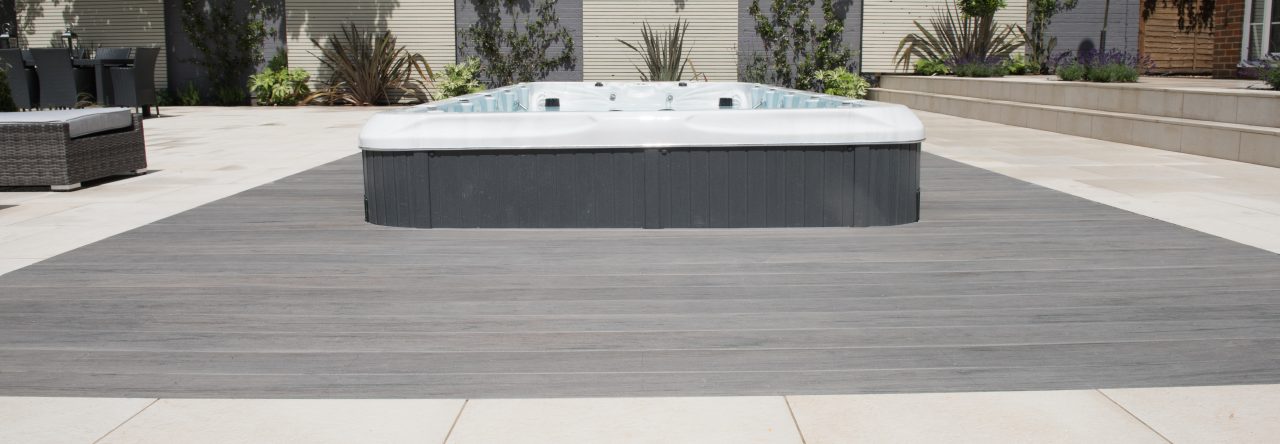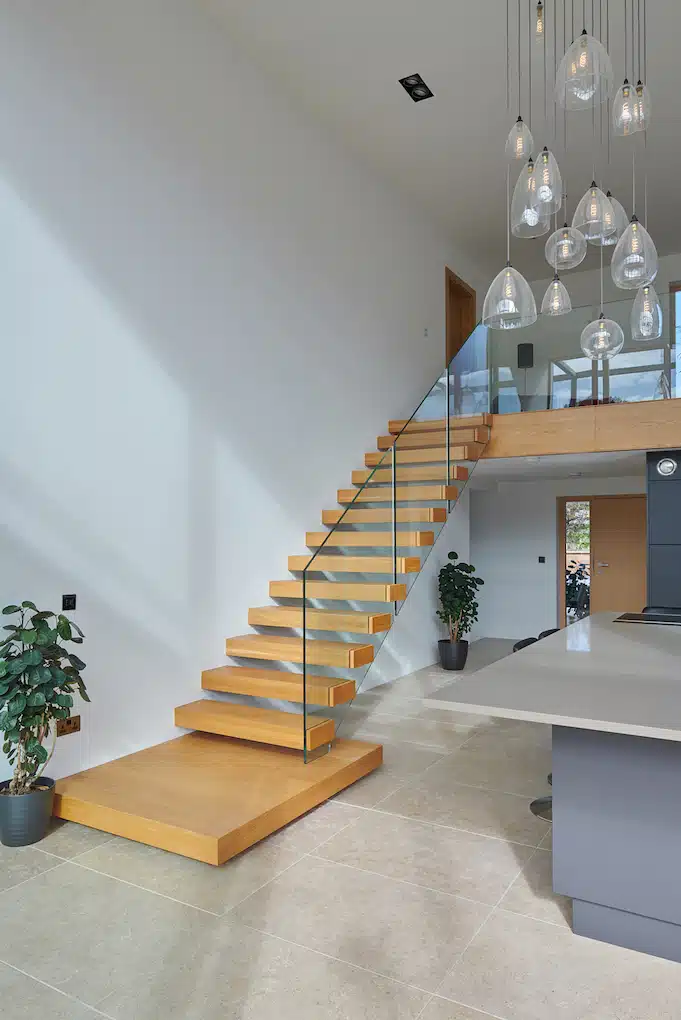Floating staircases (cantilevered or open-riser stairs) have become an increasingly popular trend in contemporary architecture and interior design, due to their distinctive design. These floating stairs are distinguished by a tread that “floats” midair without traditional risers or support structures beneath.
Here are several reasons why floating staircases make an excellent addition to modern homes or commercial spaces:
1. Aesthetic Appeal
Floating staircases offer an aesthetic that is both beautiful and minimalist. Their clean lines and open design create a sense of spaciousness and elegance in any space they are placed within, creating a striking focal point within homes or buildings alike.
2. Space Efficiency
A floating staircase’s primary advantage lies in its ability to save space. Because they do not require bulky support structures or risers, floating stairs take up less visual and physical space, making them suitable for smaller homes or areas where space is at a premium.
3. Natural Light and Ventilation
Floating staircases’ open designs enable better natural light penetration and airflow, creating brighter, more welcoming spaces by not blocking light or casting shadows; improved ventilation can further boost indoor air quality.
4. Customization
Floating staircases offer unparalleled customization capabilities for homeowners and architects. Individuals can select materials like glass, wood or metal that complement the overall aesthetic of their space while satisfying personal design preferences.
5. Modern and Timeless Design
Floating staircases have an inherently modern appearance, yet their clean and minimalist design also embodies timeless qualities that allow them to fit seamlessly into both contemporary and classic architectural settings – making them an excellent option for various spaces.
6. Accessibility
A floating staircase’s lack of risers and clear line of sight between steps make them more accessible for those with mobility challenges or visual impairments, making the staircase an easy solution to use safely. Handrails or other safety features may also be added for convenience when necessary.
7. Easy Maintenance
For floating staircases, maintenance can often be straightforward. Without risers to accumulate dust and grime, cleaning becomes much simpler over time.
8. Sustainable Design
Some floating staircases feature sustainable and eco-friendly materials for an environmentally-friendly design, contributing to their more eco-friendly appearance. In addition, their increased natural lighting and airflow may reduce artificial lighting or climate control usage and save energy by providing more natural sunlight and airflow than previously needed – potentially saving energy costs in the process!
Cost considerations for floating staircases in the UK can depend on multiple factors, including materials used, design complexity and size; as well as your supplier or manufacturer. Here are some general estimates:
Materials
Materials selection plays an integral role in determining costs associated with floating staircases, and can include wood, steel and glass or combinations thereof – although more luxurious materials or exotic woods tend to increase costs significantly.
Design Complexity
The complexity of your staircase design, such as its number of steps and curvatures as well as any additional custom features will have an effect on its cost. More intricate designs often require more labor and materials resulting in higher prices for their creation.
Size
Staircases featuring more steps will typically cost more than smaller, more compact designs.
Location plays an integral part in determining cost. If the staircase needs to be placed in an inaccessible or hard-to-reach spot, additional labor costs could arise as part of its installation process.
Installation Costs
Installation is an integral component of overall costs, from labor expenses and any required structural work, to possible extra time and expertise needed in complex installations, contributing to higher total expenses. For more information on floating staircases see Jarrods Staircases who are leading floating staircase company in UK.
Finishes and Customization
When considering additional finishing touches like staining or varnishing wood, additional costs can quickly escalate. Customized options like handrails and balustrades also tend to add to overall costs.
Supplier or Manufacturer
Since suppliers and manufacturers may offer different price points for similar designs and materials, it’s wise to obtain multiple quotes from reliable providers for an idea of the range of costs available.
Additional Features
Additional features such as integrated lighting or smart staircase systems will increase costs significantly.
Rough estimates of floating staircase costs in the UK typically start around £2,000 to £5,000; more intricate or custom designs can easily exceed this figure, reaching £10-20,000 or even beyond. Luxury-level models with premium materials and finishes may cost significantly more.
Cooperate closely with an architect, designer or staircase specialist in order to establish your needs and budget when considering a floating staircase project in the UK. Their expertise can assist you with selecting materials that suit your requirements while staying within your budget constraints; additionally obtaining multiple quotes and comparing options from multiple suppliers will help manage costs more effectively.
Floating staircases combine functionality, aesthetics and adaptability into one distinctive package that makes them a sought-after feature in modern architecture and interior design. Their ability to create openness while saving space while accommodating various design preferences make them a practical solution for homeowners and designers looking to add something special while maintaining functionality and accessibility in a space.

